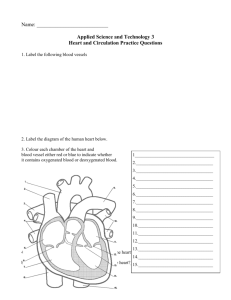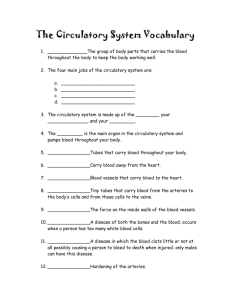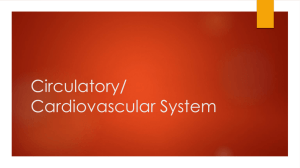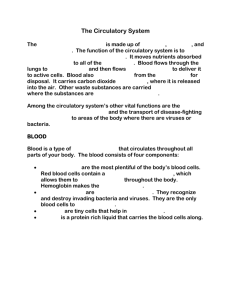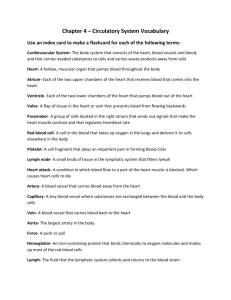Blood vessels
advertisement
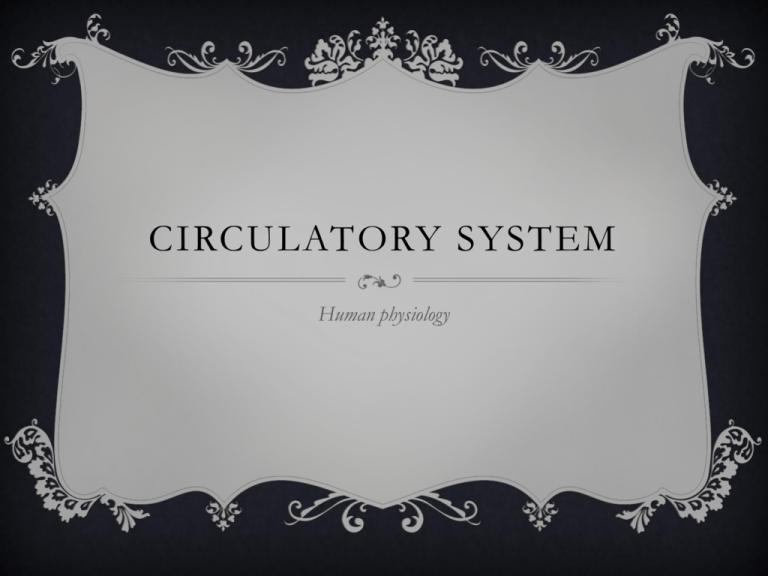
CIRCULATORY SYSTEM Human physiology THE CIRCULATORY SYSTEM Body parts: heart, arteries, veins and capillaries Function of circulatory system: • Pumps blood around your body • Delivers food and oxygen • Takes away wastes PUMPING FOR LIFE Circulation is the process of moving blood around the body • The blood brings food and oxygen to all the body’s cells • The blood carries waste away from the cells Heart – the most important organ in the circulatory system PUMPING FOR LIFE Heart: made up of four sections called chambers • Upper chambers are called atria • Lower chambers are called ventricles • each chamber pumps blood to the body BLOOD VESSELS A blood vessel is a tube that carries blood around the body Three different types of blood vessels: 1. Artery – blood vessels that carries blood away from the heart to the body’s cells 2. Vein – blood vessel that returns blood to the heart 3. Capillary – tiny blood vessel that connects an artery to a vein - smallest blood vessels in body - only one blood cell can pass at one time BLOOD VESSELS BLOOD Blood is made up of a liquid part and three solid parts Plasma – liquid part of blood • Mostly made up of water • Carries food molecules, wastes and other materials 3 types of solids: • Red blood cell – carries oxygen and carbon dioxide • White blood cell – fights bacteria and helps immune system • Platelet – creates clots when you are bleeding Veins (blue) Arteries (red) Heart HEART DISEASE Blood pressure is a measure of how hard it is for blood to get through blood vessels The narrower the blood vessels, the higher the pressure is. High blood pressure can damage the heart and lead to heart disease. A heart attack happens when blood vessels to the heart muscles become clogged. • The heart cannot get oxygen it needs and stops pumping • Without the heart pumping, the rest of the body isn’t getting the oxygen it needs to stay alive EXIT SLIP 1. What is the purpose of the circulatory system? Moves blood around the body 2. What is the difference between an artery and a vein? Arteries carry blood away from the heart, a vein returns blood to the heart 3. Why is it important to keep blood vessels to the heart muscle open? When the blood vessels become clogged, the heart muscle cannot get the oxygen it needs to pump

